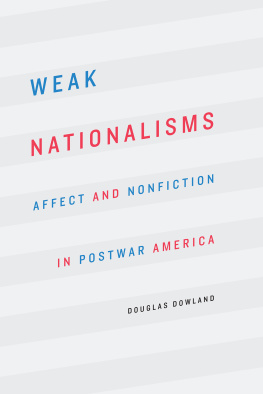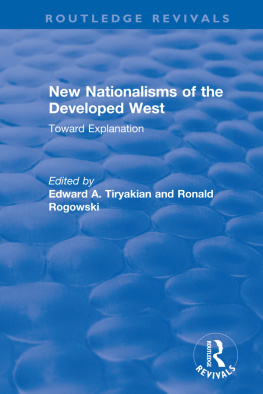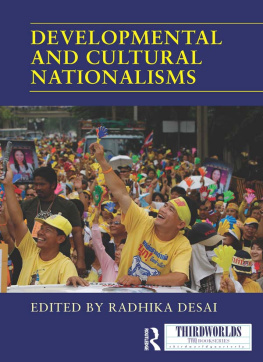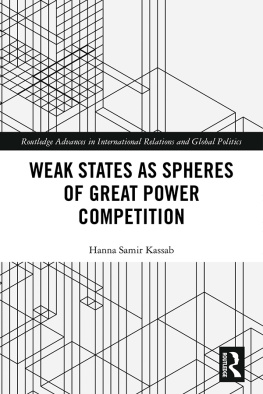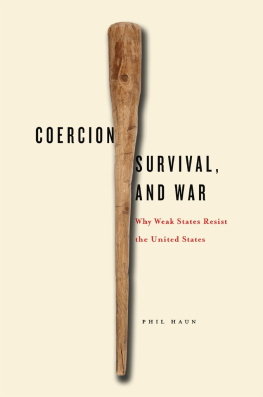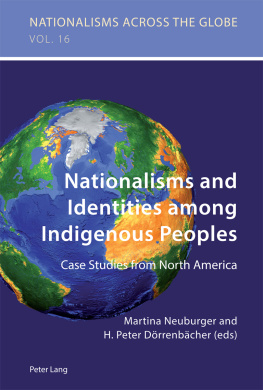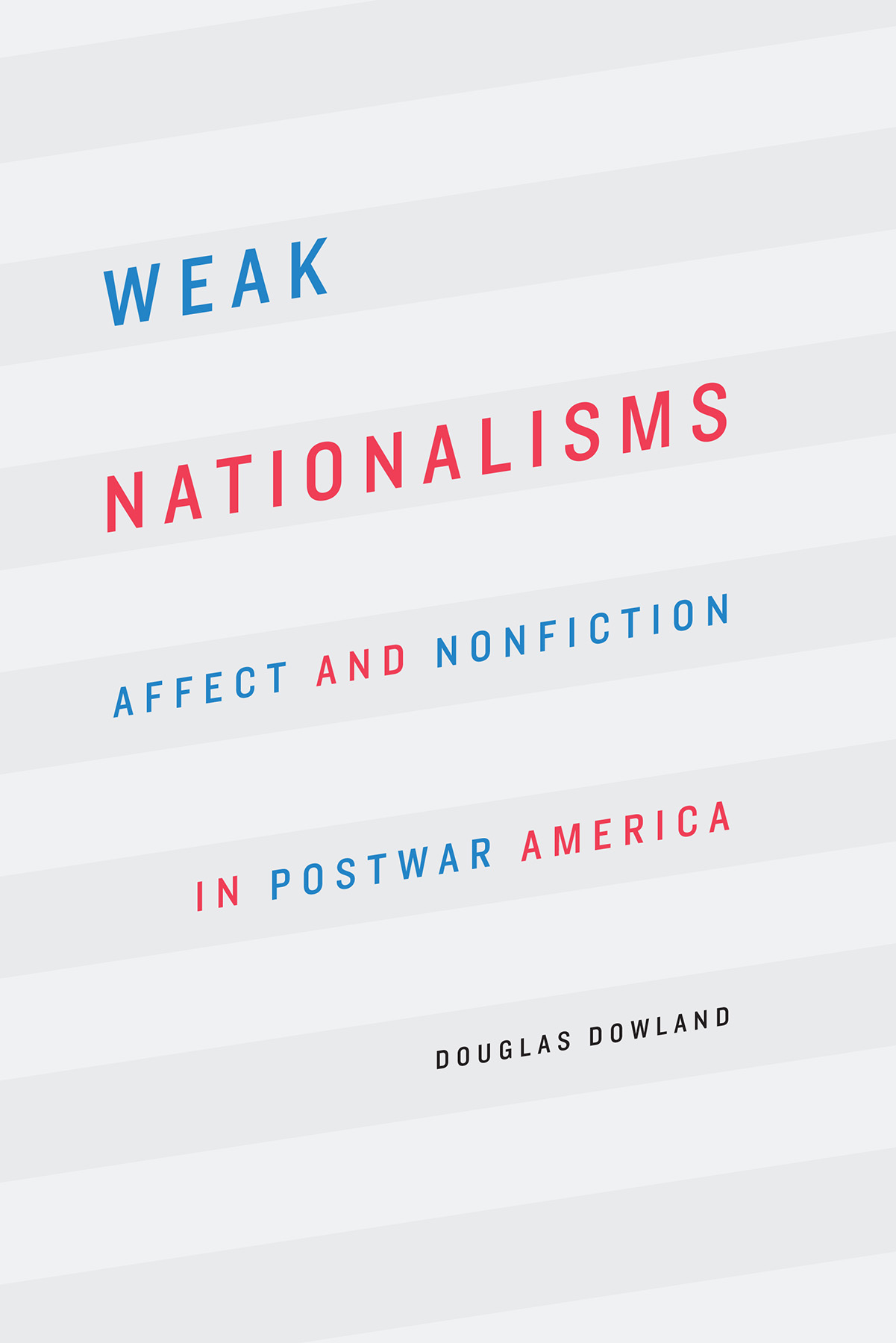
Where many studies of nationalism stress the obscured means through which affective ties work, Dowland finds most interesting the unmediated, tactile, sensuous engagement with the emotions evident in the nonfiction works he considers. With its interest in the persistence of national affect, Weak Nationalisms is a timely and important study.
Priscilla Wald, R. Florence Brinkley Professor of English at Duke University
Weak Nationalisms makes visible a vibrant and underappreciated trajectory of literary nonfiction about the United States. Douglas Dowland effectively and persuasively presents the ways in which a range of writers negotiate a mode of nationalistic feeling that embraces core tenets of American liberalism, while resisting and questioning the hierarchies that we often associate with nationalism.
Daniel Worden, author of Masculine Style: The American West and Literary Modernism
How have citizens of the United States historically understood their relationship to the nation? The answer Weak Nationalisms gives is both elegantly specific and broadly compelling. This book is smart and timely. It draws out some of the most pressing issues Americans are currently tangling with in everyday life. It is an engaging, well-executed, and important book.
Rachel Greenwald Smith, author of Affect and American Literature in the Age of Neoliberalism
Weak Nationalisms
Affect and Nonfiction in Postwar America
Douglas Dowland
University of Nebraska Press | Lincoln
2019 by the Board of Regents of the University of Nebraska
Acknowledgments for the use of copyrighted material appear in , which constitutes an extension of the copyright page.
Cover designed by University of Nebraska Press.
All rights reserved
Library of Congress Cataloging-in-Publication Data
Names: Dowland, Douglas, author.
Title: Weak nationalisms: affect and nonfiction in postwar America / Douglas Dowland.
Description: Lincoln: University of Nebraska Press, [2019] | Includes bibliographical references and index.
Identifiers: LCCN 2018046954
ISBN 9781496200501 (cloth: alk. paper)
ISBN 9781496215482 (pbk.: alk. paper)
ISBN 9781496215994 (epub)
ISBN 9781496216007 (mobi)
ISBN 9781496216014 (pdf)
Subjects: LCSH : American literatureHistory and criticism. | Nationalism in literature. | National characteristics, American, in literature. | Synecdoche.
Classification: LCC PS 169. N 36 D 69 2019 | DDC 810.9/3581dc23 LC record available at https://lccn.loc.gov/2018046954
The publisher does not have any control over and does not assume any responsibility for author or third-party websites or their content.
Contents
A book is, if anything, an index of narratives. This book is also an index of my intellectual career: it began as an undergraduate honors thesis on John Steinbeck, which I undertook at Michigan State University under the codirection of Ellen McCallum and the late David T. Bailey. The issues of national identity in my thesis continued to blossom throughout my graduate studies at the University of Iowa and eventually became my dissertation, directed by Brooks Landon. My thanks as well to David Wittenberg, Claire Fox, Loren Glass, Naomi Greyser, Daniel M. Gross, and the late Kenneth Cmiel for their guidance.
The Getty College of Arts and Sciences at Ohio Northern University has approved reductions in teaching load as well as faculty research grants that accelerated the development of this book. My appreciation to Holly Baumgartner, dean, and Catherine Albrecht, former dean, and Lisa G. Robeson, chair of the Department of English, for helping me in this way.
The University of Nebraska Press has maintained a steady faith in this book from its inception to its publication. My thanks to Alicia Christensen and to the two superb readers commissioned by the press, and to Wayne Larsen for his judicious copyediting.
My thanks as well to Joshua Gooch, who read far too much of this book in each of its stages and provided generous feedback each step of the way.
Most of this book has been written in the presence of Joanie, a rescued Chihuahua, who dozed as I typed and attentively listened as I read the draft manuscript aloudthough I admit she may have dozed while I read it aloud as well.
Affected Readers in an Imagined Community
Since the Second World War, defining America has become one of nonfictions urgent tasks. One way of understanding how postwar nonfiction, broadly conceived, negotiated this urgency is by examining the way in which affectand the pervasive use of synecdoche as a means to evoke affectshaped the textual construction of the nation. How do theories of affect illuminate, for example, the intensities of an essay like Jane Smileys The Unteachable Ignorance of the Red States? Published in Slate less than forty-eight hours after the polls closed upon the 2004 presidential election, Smileys essay declared, The election results reflect the decision of the right wing to cultivate and exploit ignorance in the citizenry.
In moments of strong affect, synecdoches of nationalism often presume an us/them dichotomy. Typically, this presumes an interpretation in which us (or we) are true nationalists, whereas them (or they) are false representatives. Smileys evocation of blue state and red state citizens is further synecdochical, reducing complex politics to simple, primary colors. In her schema, individualswho undoubtedly have contradictory and inconsistent political positionsare little more than citizens of the states in which a majority of those citizens vote for a particular party (which undoubtedly have contradictory and inconsistent positions of their own.) The driving force behind Smileys essaythat blue and red state citizens have diametrically opposing human naturesrests fundamentally on a perspective that political parties are truly representative of individual Americans, that part and whole are the same. Such synecdochesand the dichotomies they encourageperpetuate an extreme reading of the nation: it is not just that red state citizens believe in original sin but that they are full of it, not just that they are violent but that they savor, have a taste for violence.
Synecdoches that evoke an us/them dichotomy almost always place readers in the us position. Unteachable is an educators lament, the washing of ones hands of an incorrigible student. The phrase suggests a relationship in which Smiley becomes the teacher, in which the red state types become students. (And I presume, as readers of Slate, we are colleagues in the know. After all, who else would use the phrase unteachable but one teacher to another?) Her experience growing up in Missouri and her awareness of her familys voting record evokes a long tenure among such red state types. And her diagnosis makes her superior to them: positioned as a teacher, Smiley gives herself the authority to dismiss the red state types from her purview through the evaluation of their incorrigibility.
But such diagnoses can take place only through the theories of affect that support them. Smileys conception of who red state Americans are, and the ignorance they perpetuate, is also a theory of affect. Such ignorance, according to Smiley, begins by instilling fear that if you dont believe in the literal word of the Bible, you will burn in hell, a belief that can be instilled only by abdicating critical thinking and realizing that Satan resides in the toils and snares of complex thought. If the left is persistently thoughtful and vigilantly reactive, Smiley suggests, they can overwhelm the unteachable, one presumes, even if doing so does not teach them a thing.
Next page
